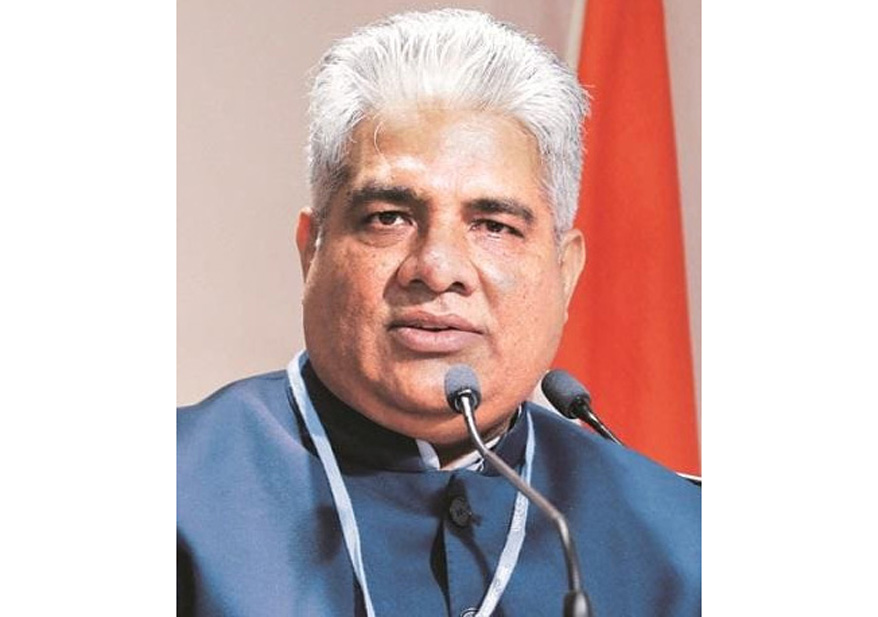NEW DELHI, Feb 16: Twelve cheetahs will be flown in from South Africa on February 18, Union Environment Minister Bhupender Yadav said on Thursday.
Under the ambitious Cheetah reintroduction programme, Prime Minister Narendra Modi had released the first batch of eight spotted felines — five females and three males — from Namibia into a quarantine enclosure at the Kuno National Park in Madhya Pradesh on his 72nd birthday on September 17 last year.
Presently, the eight cheetahs at Kuno are killing a prey every three-four days and are in good health, officials said.
One of the cheetahs was unwell as her creatinine levels had shot up. She has recovered after treatment, they said.
“A C-17 aircraft of the Indian Air Force (IAF) left the country Thursday morning to bring 12 cheetahs from South Africa. Ten quarantine enclosures have been created at the Kuno National Park for these felines,” the minister said at a press conference here.
India and South Africa had in January signed an MoU to transport cheetahs from the African country and reintroduce them in Kuno.
A majority of the world’s 7,000 cheetahs live in South Africa, Namibia and Botswana. Namibia has the world’s largest population of cheetahs.
The cheetah is the only large carnivore that got completely wiped out from India, mainly due to overhunting and habitat loss. The last spotted feline died in 1948 in the Sal forests of Chhattisgarh’s Koriya district.
National Tiger Conservation Authority head S P Yadav said, “Seven male and five female cheetahs will embark on the journey to Kuno from O. R. Tambo International Airport, Gauteng, South Africa Friday evening.”
“The cheetahs will arrive at the Gwalior Air Force base in Madhya Pradesh at 10 am on Saturday and they will be then taken in IAF’s MI-17 helicopters,” he said.
Yadav added that in South Africa, three of the cheetahs have been kept in Phinda quarantine boma in KwaZulu-Natal Province and nine in Rooiberg Quarantine boma in Limpopo Province.
According to the ‘Action Plan for Reintroduction of Cheetah in India’ prepared by the Wildlife Institute of India, around 12-14 wild cheetahs that are ideal for establishing a new cheetah population would be imported from South Africa, Namibia and other African countries as a founder stock for five years initially and then as required by the programme. (PTI)
“Following the import of 12 cheetahs in February, the plan is to translocate further 12 cheetahs annually for the next eight to 10 years. The terms of the MoU will be reviewed every five years to ensure it remains relevant,” the Environment Ministry said. (PTI)


